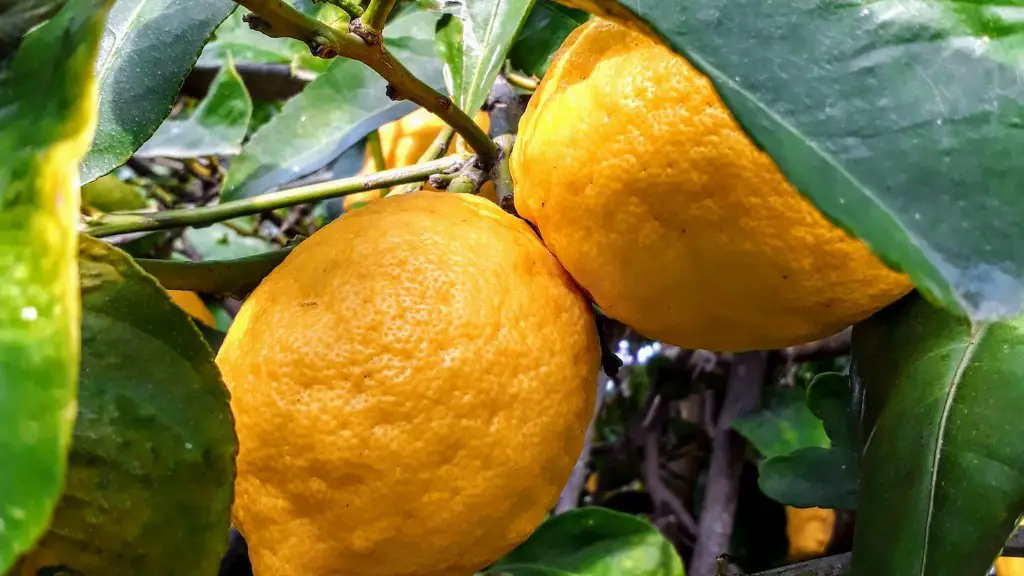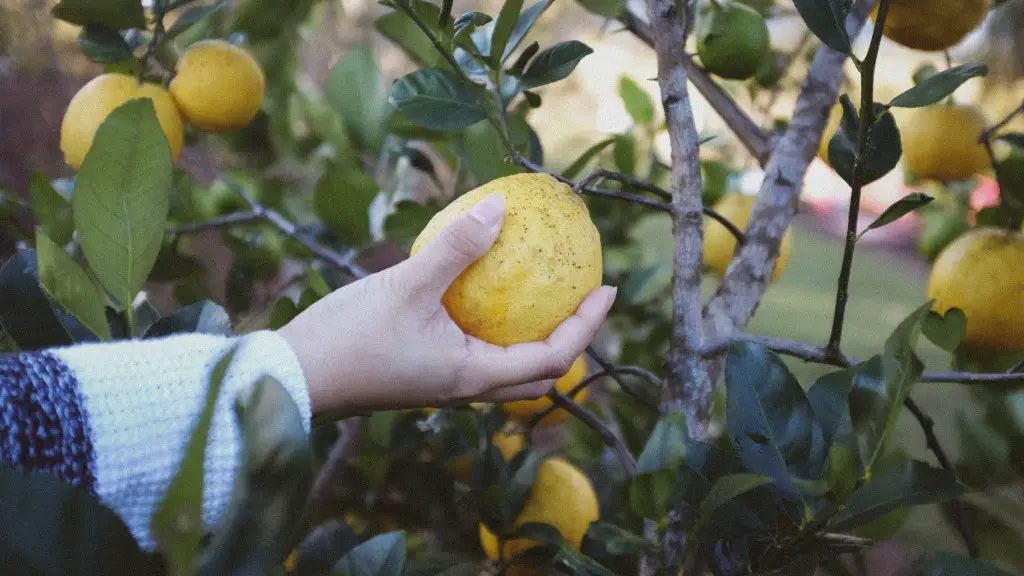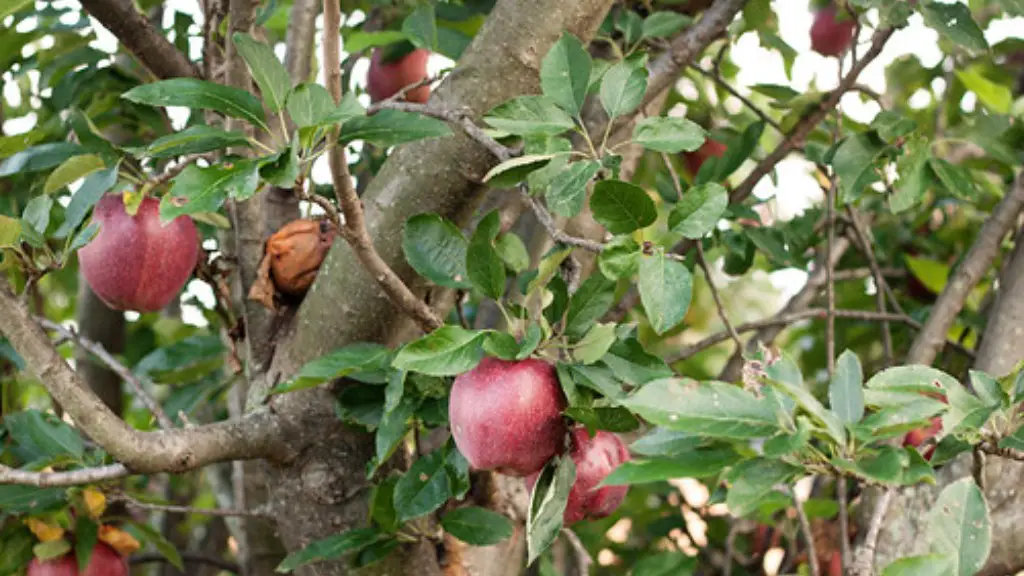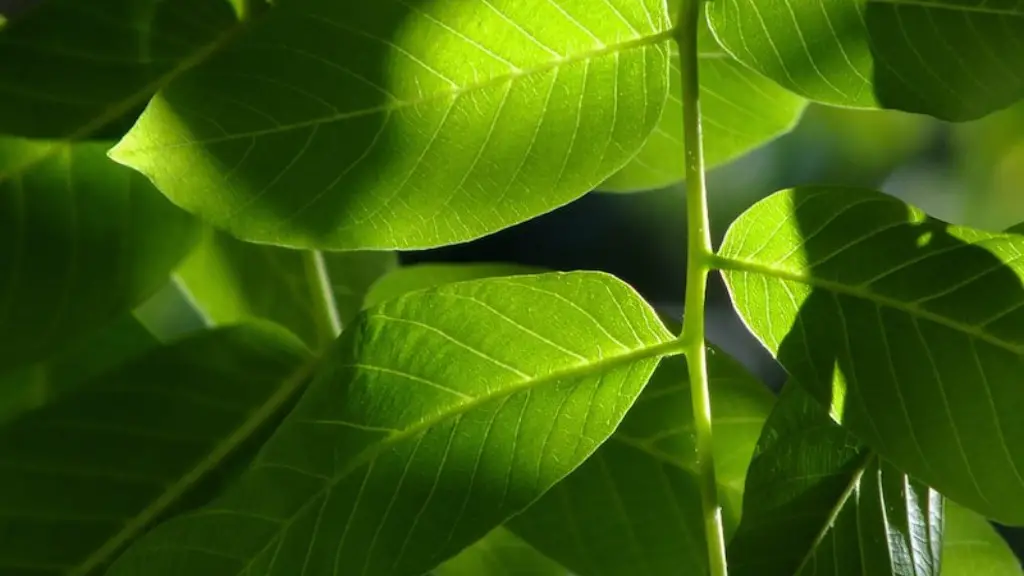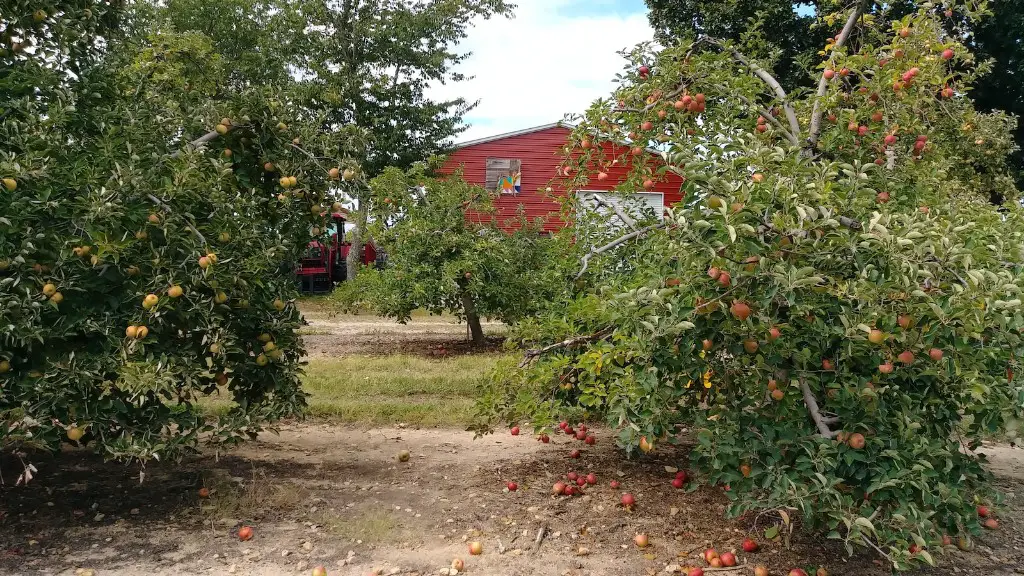Growing a lemon tree in a pot or container is a great way to enjoy the exceptional flavor and fragrance of lemons without having to work a full-sized garden. The key to successfully growing a lemon tree in a container is to make sure you have the right pot, soil, and fertilizer. Here’s a guide on how to get the best out of growing a lemon tree in a container.
First, you’ll need a pot or container that is at least ten to fifteen gallons in size. This will give your lemon tree enough room to stretch its roots and grow. Make sure the pot has drainage holes on the bottom.
Next, use a soil-less potting mix, like Miracle-Gro Moisture Control Potting Mix. This will help keep your lemon tree’s soil well aerated and it won’t become waterlogged or soggy. You can also mix in some compost or manure and some sand, if available.
You’ll need to fertilize your lemon tree throughout the active growing season. Use a fertilizer with a balance of nitrogen, phosphorus, and potassium. The right fertilizer will help promote healthy growth and fruit production in your lemon tree.
When watering your lemon tree, do not over water or drown it. It’s best to allow the soil to almost dry out before giving it a good soak. Lemon trees do not require a lot of water, so do not keep the soil constantly moist.
For best results, place your lemon tree in a bright, sunny location. The bright sunlight will help promote healthy growth and fruit production. If you live in a cooler climate, bring your lemon tree inside during the winter months. This will help protect it from cold temperatures.
Finally, be sure to prune your lemon tree regularly. This will help keep it healthy and encourage new growth and fruit production. Just make sure to use sharp, clean tools when pruning and be very careful not to accidentally damage your tree.
Fertilizing a Lemon Tree in a Container
Fertilizing a lemon tree in a container correctly is essential for healthy growth and fruit production. Applying a fertilizer that is specially formulated for citrus trees, such as Miracle-Gro Citrus, Tree & Shrub Plant Food, will ensure you provide your lemon tree with all the necessary nutrients it needs throughout its active growing period.
If you’ve just purchased your lemon tree, apply a fertilizer with a balanced mix of nitrogen, phosphorus, and potassium. A good idea is to use a balanced manure/ compost mixture. If you want to show your appreciation to Mother Nature, why not make your own compost? It’s easy, inexpensive, and your lemon tree will be grateful.
When it comes to frequency of fertilizing, around once a month will work best in the summer months and should stop in late fall before winter sets in. Whatever fertilizer you choose, make sure to read the instructions on the back of the bag carefully first and be aware that some fertilizers will cause burning if not used correctly.
Remember that it’s also important to ensure your lemon tree is getting enough water. While lemon trees don’t require a lot of water for maintaining a healthy, vigorous growth, failing to give it enough water will have a negative effect on its health and fruit production.
Providing your lemon tree with the necessary nutrients it needs, along with giving it enough but not too much water, will ensure a healthy growth and bountiful fruit production.
The Best Conditions for Growing Lemon Trees in Containers
Depending on the climate of where you live, growing a lemon tree in a container is best done outdoors. Lemon trees are particularly sensitive to cold temperatures, so it’s best to bring them inside if you get sustained periods of frosty weather in your area. When it comes to the temperature, lemon trees prefer warmer climates, especially during their growing season.
Lemon trees need some sunlight, so you’ll need to find the right spot. An area that receives a good amount of bright but indirect light throughout the day is ideal. If you don’t have an area outdoors that is shaded in the afternoon, bring your lemon tree indoors for the afternoon to protect it from the stronger midday light.
To help retain moisture, you can mulch the surface of the soil in your lemon tree’s container. Using an organic mulch such as wood chips, cardboard, or shredded leaves is best. If you’re living in an area where the temperature dips below ten degrees Celsius, you can use a plastic mulch to provide extra insulation for your tree.
The main thing to remember when growing a lemon tree in a container is that the more comfortable the tree is, the better it will be able to produce lemons. The right location, adequate amounts of water and sunlight, and correct fertilizing and mulching will all help your tree produce amazing fruit.
Potting, Transplanting and Repotting Lemon Trees in Containers
If you want to get the best out of growing a lemon tree in a pot, here are some potting, transplanting and repotting tips to help you on the way. Firstly, you need to choose a pot that is big enough. A pot that is at least ten to fifteen gallons is ideal. It should have good drainage holes on the bottom and should be made from an insulating material like terracotta.
Once you’ve chosen the perfect pot, add a soil-less potting mix. You can add a mix of compost, manure, and sand for extra nutrient value. Now the hard work is done, you can add you lemon tree to the soil and give it a good watering. Be sure to water your lemon tree regularly but don’t over-water it or let the soil become constantly moist.
If you want to transplant or repot your lemon tree, do it in the early spring as that is when it is most likely to take to its new pot or soil. When repotting, make sure the new pot is a size or two larger than the old one. Fill the new pot 2/3 of the way up with soil, then remove your lemon tree from its old pot, making sure there is as little disruption to the root system as possible.
Place the root ball of your lemon tree gently into the new pot and fill in with soil. Give the soil a good watering and if you want, add a layer of mulch. This will help retain moisture and protect the roots from any extreme temperatures. If you need to trim the roots, make sure to use a clean, sharp tool for safety.
Caring for a Lemon Tree in a Container
Growing a lemon tree in a container requires some special care. To start with, you need to keep on top of your tree’s soil and water requirements. An ideal mix would be to water it every couple of days during the hot summer months and once or twice a week in the cooler months. You’ll also need to prune part of the plant from time to time to keep it healthy.
Throughout its active growing season, make sure to feed your lemon tree a nutritious fertilizer, such as Miracle-Gro Citrus, Tree & Shrub Plant Food, which you can apply once per month. This will help to keep your tree healthy and encourage consistent fruit production.
You also need to keep an eye out for any pests or diseases that may plague your lemon tree. Common pests of lemon trees include scale insects, mites, and aphids. If you spot any of these pests on your lemon tree, you can spray it with a horticultural oil product. Diseases, such as verticillium wilt, root rot, and citrus canker, can also damage your lemon tree, so keep an eye out for any telltale signs.
By following the tips above, you should be able to successfully grow your own lemon tree in a container and enjoy its sweet, fragrant fruits.
Tips on How to Get the Best Results From Growing a Lemon Tree in a Container
Growing a lemon tree in a container doesn’t have to be difficult if you understand its needs. Start by choosing the right size of pot and fill it with the right soil and fertilizer. Make sure the pot has drainage holes on the bottom and the soil is well aerated. Feed it the right fertilizer and give it enough but not too much water.
Place your lemon tree in an area that receives a good amount of sunlight and put some organic mulch on top. To make sure your lemon tree is as healthy and vigorous as possible, bring it inside if temperatures dip too low and prune it every once in a while.
Finally, be on the lookout for any pests or diseases that could damage your lemon tree. If you spot any, treat them immediately. All these tips will help ensure you get the best results from growing a lemon tree in a container.
